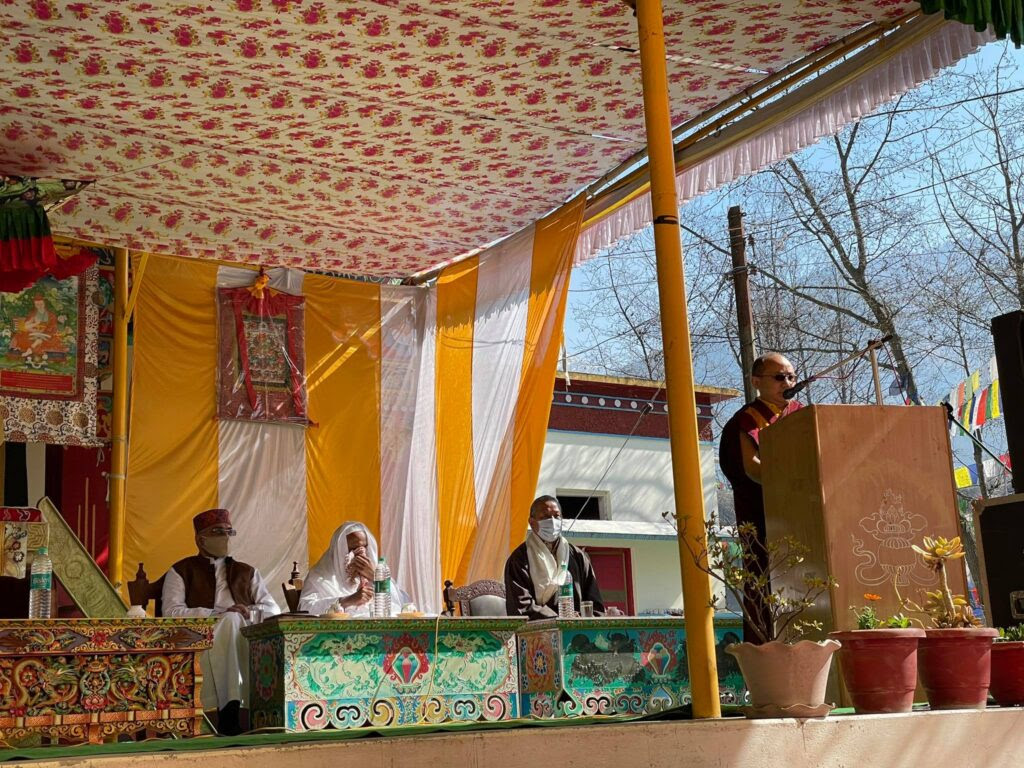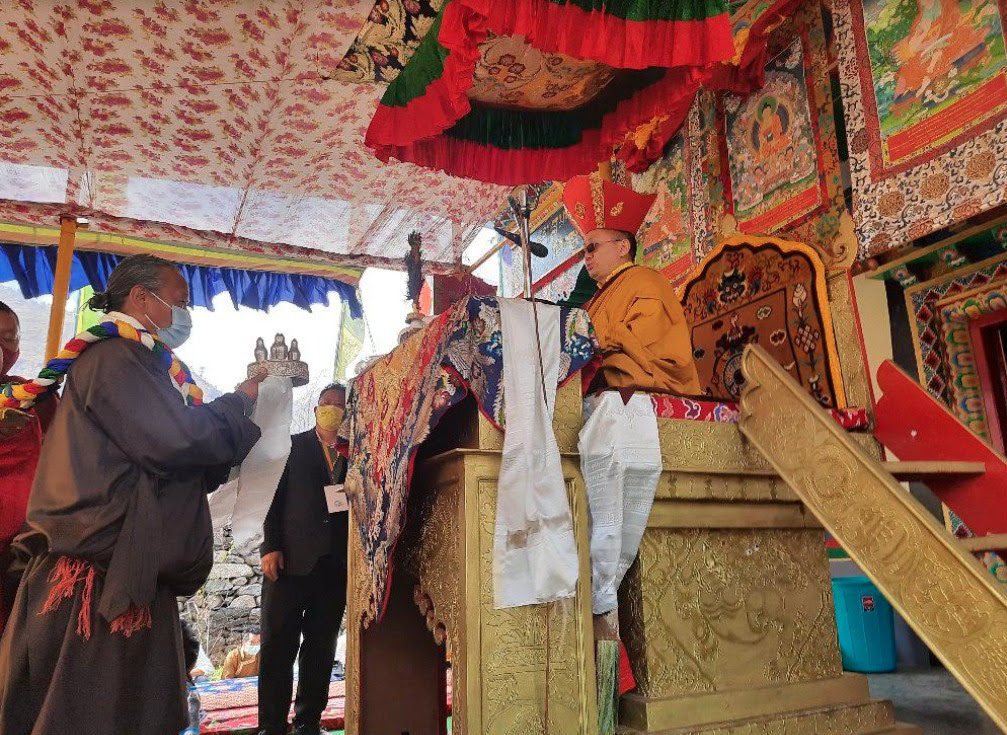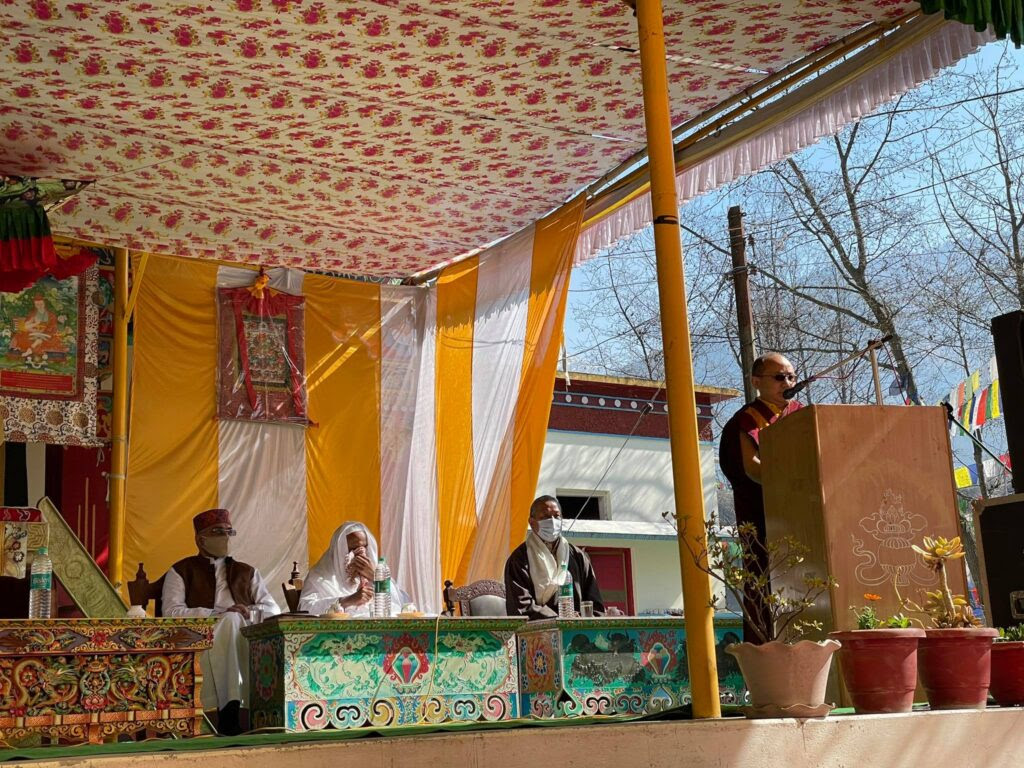
Taklung Matrul Rinpoche, Head of Taklung Kagyu sect of Tibetan Buddhist tradition speaking at the All Religions Prayer for World Peace and Special Talk on Inter-religious Harmony, an initiative of Kullu-Manali Settlement Office. Photo/Kullu-Manali Settlement Office
By – Shyamal Sinha
Religious harmony in India is a concept that indicates that there is love, affection in between different religions in India. The Indian constitution supports and encourages religious harmony. In India, every citizen has a right to choose and practice any religion.There are examples of Muslims and Sikhs building temples. In India, different religious traditions live harmoniously. Seers of religions call for religious harmony in India
The ancient Indian scripture Rigveda endeavors plurality of religious thought with its mention “ekaM sadvipraa bahudhaa vadanti ” (Sanskrit: एकं सद्विप्रा बहुधा वदन्ति)– meaning wise people explain the same truth in different manners.
On 3 March, the auspicious White Wednesday of His Holiness the 14th Dalai Lama, the Settlement Office of Kullu- Manali organised the first of a kind inter-religious dialogue, titled ‘All Religions Prayer for World Peace and Special Talk on Inter-religious Harmony’ under the auspices of the Central Tibetan Administration.
The Central Tibetan Administration led by the 15th Kashag dedicated the year 2020-21 as ‘Year of Gratitude to His Holiness the Dalai Lama. It is in this spirit that TSO Kullu Manali has taken the initiative to organise a special talk, bringing together representatives of various religious traditions to talk about one of the four principal commitments of His Holiness the Dalai Lama: the promotion of Inter-religious harmony.
Honorary representatives of the different religions who graced the event include Taklung Matrul Rinpoche, Head of Taklung Kagyu sect of Tibetan Buddhist tradition, Lochen Rinpoche, Khentsap, Kais Dagpo Shedup Monastery, Gelug sect of Tibetan Buddhist tradition, Pandit ji Mahima Nautiyal, Bodh Nath Mandir at Manali, Imam Molana Sajit ji, Masjid at Manali, Reverend. Naresh Lall ji, the Lady Willington Hospital, Manali, Sardar ji Bhagtishwar Sigh ji, Gurudwara Temple based in Manali. Local pradhan, members of Tibet Support Group also attended.
Mr Thupten Chophel, Settlement Officer of Kullu-Manali Tibetan Settlement delivered the welcome address, followed by all the representatives of various faith who spoke on inter-religious harmony.
On behalf of the CTA, the Settlement Officer felicitated each representative with a traditional Tibetan scarf and souvenirs and thanked the Kais Dagpo Shedup Monastery, Kullu-Manali for sponsoring the luncheon and refreshments for all the guests and audience at the gathering.
The special talk concluded with a vote of thanks by Mr Thokmey, President of Local Tibetan Assembly, Kullu-Manali.
The second segment of the event included Buddhist introductory teaching and conferring of initiation by Kyapje Taklung Matrul Rinpoche.

Mandala offering by Mr Thupten Chophel, Settlement Officer of Kullu-Manali Tibetan Settlement to Taklung Matrul Rinpoche during the Buddhist introductory teaching and conferring of initiation. Photo/Kullu-Manali Settlement Office

Rinpoche blessing members of the audience. Photo/Kullu-Manali Settlement Office
Ashoka (304–232 BC), in his 12th edict stated:
“The beloved of the gods, king Piyadasi, honors both ascetics and the householders of all religions, and he honors them with gifts and honors of various kinds. . Whoever praises his own religion, due to excessive devotion, and condemns others with the thought “Let me glorify my own religion,” only harms his own religion. Therefore contact between religions is good. One should listen to and respect the doctrines professed by others. The beloved of the gods, king Piyadasi, desires that all should be well-learned in the good doctrines of other religions. ”
source — cta












